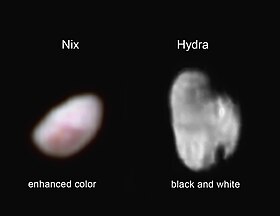- 27,321
- 40,193
Kepler detects planets by watching how bright a star is. Every time a planet passes in front of a star from our view, that star will get slightly dimmer. Kepler likely detected the star getting some fraciton of a percent dimmer in a few set intervals.Repost from science thread since this thread is more relevant:
Given that we just found out basic information about pluto, as a layman I am totally suspicious about any information we have about a planet that is 1400ly away. My understanding is that they look at how a star wobbles based on its orbiting planets, but I feel like without having a way to test those calculations and technology on anything other than our solar system, it's an unproven method.
As for detecting atmospheres and compositions of extrasolar bodies, this can be tested within our solar system, but is done by exactly measuring essentially the color of light (spectroscopy).
An example of this being done in our solar system is with our first measurements of pluto. Occasionally planets will pass directly in front of a star, and this star will back light them. Using a lot of complex math and careful measurements of how the light of the star changes, we can determine a lot of things about the object in front of the star. With pluto, one of the specific discoveries we made when it passed directly in front of another star was that it was brownish in color. This is also the main reason the new horizons satelite turned back to watch pluto from the dark side, to watch the spectroscopy of the sun change against against the black body of our sun. The essential explination of how and why this works is the fact that light from stars tends to be very pure and perfect, so even incredibly small spikes caused by the interference of a small planet passing in front of them can be detected, especially when the existence and location of that planet in reference to the star is known.













